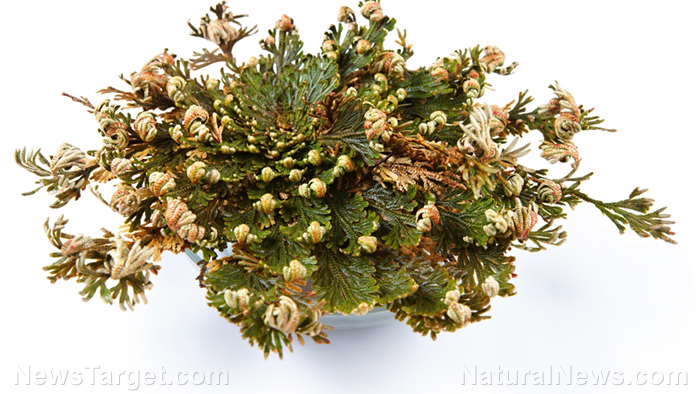Compounds in lung moss can potentially treat even drug-resistant candida infections
12/25/2019 / By Edsel Cook

A grayish lung-like lichen may help treat patients with infectious fungal diseases that developed a resistance to pharmaceutical drugs. A new study found that natural molecules in lung moss (Lobaria pulmonaria) possess anti-fungal activity and can selectively target drug-resistant strains of Candida albicans.
The use of too many antibacterials, anti-fungals and other pharmaceutical drugs led to the appearance of drug-resistant strains. The disease-causing organisms developed ways to survive the lethal effects of antibiotic drugs.
For example, microbial cells may activate efflux pumps in the cellular membrane. The proteins pump out harmful substances that get inside the cell.
Efflux pumps and other multi-drug resistant proteins prevent pharmaceutical drugs from damaging the vulnerable parts of the microorganism. They increase the likelihood of the microbe surviving treatment.
Additionally, drug-resistant microorganisms often coexist with strains that prove vulnerable to pharmaceutical drugs. During antibiotic treatment, a part of the population of drug-susceptible microbes might respond by mutating into the resistant strain.
Since the antibiotic treatment will kill off the susceptible microbes, the drug-resistant strains may end up becoming the dominant type in the niche. Their preponderance will worsen the health of the patient. (Related: Beat Candida and balance your gut health with these 20 anti-fungal foods.)
The anti-fungal properties of lung moss against drug-resistant fungi
Scientists are currently in search of antibiotic agents that bypass drug resistance. These new treatments must be selective — they must avoid triggering mutations in non-resistant strains.

Also known as tree lungwort, lung moss is a lichen found in North America, Europe and Asia. It likes humid forest environments and grows on the bark of conifers and hardwood trees, as well as the surfaces of rocks.
Its name comes from its resemblance to the human lung. It is not related to the true lungwort (Pulmonaria officinalis) — the latter happens to be another medicinal plant recommended for respiratory diseases.
Homeopaths prescribe a tincture made of lung moss to patients with whooping cough, gout, rheumatism or tuberculosis. Lung moss also treats cold, lack of milk in women, anxiety-related sleeplessness and hysterical chorea after severe bleeding.
Researchers from Shandong University (SDU) investigated the effectiveness of lung moss on drug-resistant Candida albicans. Found in the skin and mucus membranes, C. albicans is a pathogenic yeast.
C. albicans causes candidiasis, a fungal infection that may appear on different parts of the body. There are multi-drug resistant strains that resist fluconazole and other pharmaceutical drugs prescribed for candida infections.
Natural molecules in lung moss selectively kill drug-resistant Candida albicans
The SDU researchers set up a co-culture system with both drug-susceptible and azole-resistant strains of C. albicans. They applied green fluorescent proteins on the susceptible version to make it stand out.
Next, they screened natural molecules found in lung moss for their potential as anti-fungal agents. They compared the results among the candidates and to the azole-type anti-fungal drug fluconazole.
They identified five lung moss-derived molecules with anti-fungal effects against susceptible and drug-resistant C. albicans strains. Of the candidates, two caught their eye.
Retigeric acid B and riccardin D displayed a preference for targeting C. albicans strains with activated efflux pump MDR1 protein. The researchers believe that the two molecules sought out the higher intracellular accumulation of the drugs in the resistant strains.
Furthermore, the drug-resistant strains changed the make-up of their lipids and sterols. The alterations might have made it easier for the lung moss molecules to pass through the yeast’s cell membrane.
Retigeric acid B and riccardin D hampered the sterol pathway in the MDR1-activated strains. The lung moss-derived molecules increased the drop in ergosterol production.
The results of the SDU study concluded that compounds in lung moss might serve as natural antifungals for treating drug-resistant Candida albicans infections.
Sources include:
Submit a correction >>
Tagged Under:
alternative medicine, antibiotic resistance, Antifungal, candida albicans, Candidiasis, herbal medicine, Herbs, infections, lung moss, natural cures, natural medicine, phytonutrients, remedies, research, superbugs
This article may contain statements that reflect the opinion of the author





















